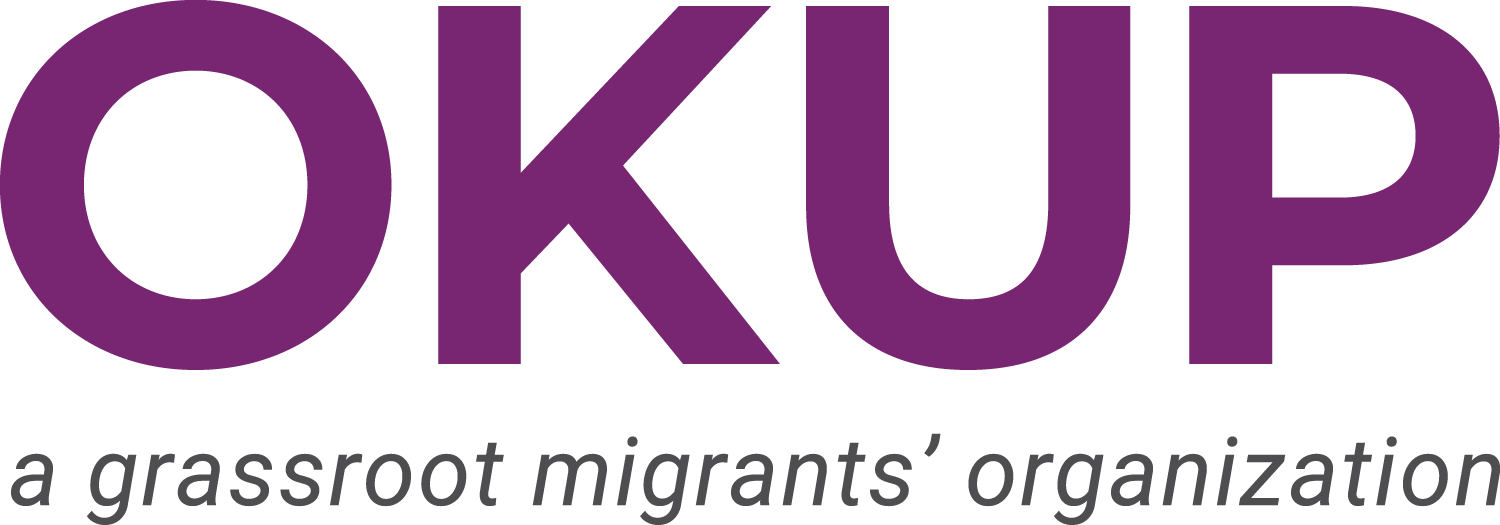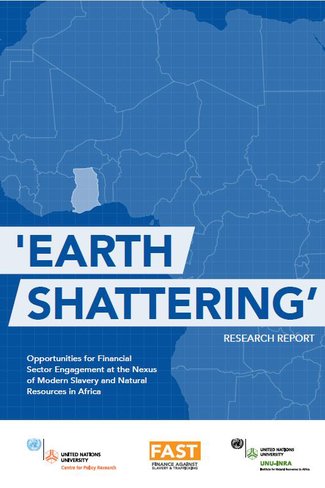Earth Shattering. Opportunities for Financial Sector Engagement at the Nexus of Modern Slavery and Natural Resources in Africa.
2022
- Author
- United Nations University Institute for Natural Resources in Africa (UNU-INRA), United Nations University Centre for Policy Research (UNU-CPR) and Finance Against Slavery and Trafficking (FAST)
- World region
- Sub-Saharan Africa
- Origin of migration
- Ashanti and Western Regions in Ghana, Burkina Faso, Niger, and Togo
- Area of transit
- No data available
- Destination of migration
- Illegal Artisanal Small-scale Mining (ASM) sites, also known as galamsey sites, in the Ashanti and Western Regions of Ghana
- Who is affected
- No data available
- Type of climatic event
-
Environmental degradation, Rapid-onset event, Slow-onset event
Relevant effects of climate change in this context include: drought, high temperatures, strong winds, heavy rainfall and environmental degradation, such as deforestation.
- Type of migration/mobility
-
Cross-border, Immobility, Internal
*Immobility (intended here as local people who end up in these exploitative industries)
- Destination industry or sector
-
Manual Labour, Mining
*Cocoa, gold mining
- Type of modern slavery
-
Debt bondage
This source examines examples of labour exploitation, but falls short of determining whether they amount to modern slavery and, if so, which forms.
- Link between climate change, migration and modern slavery
- Indirect
- Key vulnerability factors
-
Climate change and environmental degradation impact production, reducing or eliminating income and rendering people vulnerable to modern slavery. Weak enforcement of policies and legislation on modern slavery creates an enabling environment for modern slavery. Key contributors to vulnerability include: informal work, exclusion from social protection, low literacy levels and exclusion from financial services. Traditional gender roles and patriarchal social structures make women more vulnerable to modern slavery.
- Summary
-
This report explores the link between modern slavery and natural resources in Ghana, specifically in the cocoa and gold mining value chains. It seeks to inform practice in the financial sector, in particular to address exposure to modern slavery. The report recognises the connections between climate change, environmental degradation and heightened vulnerability to modern slavery.
- Recommendations
-
The recommendations focus on the financial sector's role in reducing vulnerability to modern slavery. The report stresses the importance of improving the governance of investments in cocoa and gold value chains, increasing transparency and labour standards, reducing emissions and achieving the Sustainable Development Goals.



